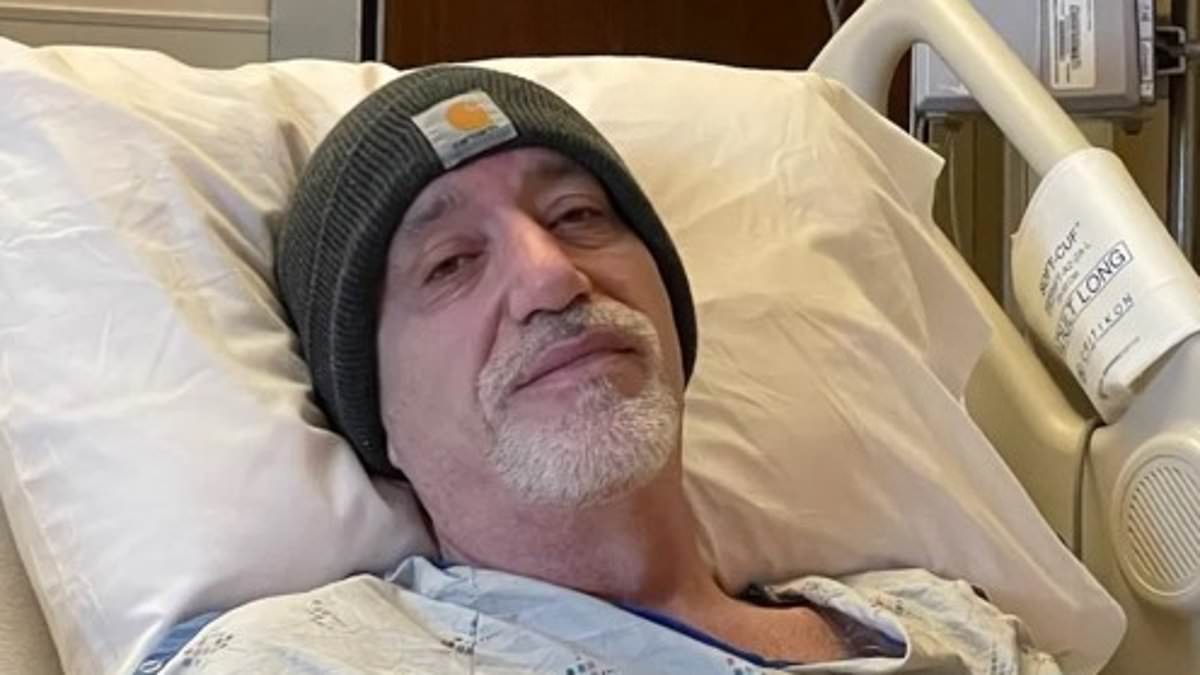Hundreds of Americans have jumped on a multi-state lawsuit alleging that the makers of Ozempic and Mounjaro caused them life-altering injuries.
The suit was filed against Novo Nordisk and Eli Lilly, the two pharma giants that have raked in billions thanks to the blockbuster weight-loss meds.
Ohio native and grandmother of seven Dana Filmore can no longer eat solid foods and has to blend her meals. Louisville’s Jacqueline Barber threw up so much she became dangerously malnourished.
Tennessee oil rig worker Bob Tuttle was forced to quit his job because the stomach pain was unbearable. And Philadelphia-born Debbie Kirtz believed she would never make it out of the hospital alive.
They and many others argue in the suit that Lilly and Novo failed to warn its millions of eager customers about the very real risk of severe gastrointestinal injury, including stomach paralysis, gallbladder issues, colon removal, and more, as well as making misleading statements about the drugs’ safety.

Dana Filmore of Columbus, Ohio, now subsists on a diet of protein shakes and Jell-O. Her stomach paralysis tied to Ozempic prevents her from eating solid foods
Dana Filmore, a 55-year-old diabetic, was uncomfortable with the prospect of having to stick herself with a needle every week when her doctor suggested she try Ozempic to manage her type 2 diabetes.
For about two years, the medicine did what it was approved to do – lower her blood sugar levels. But in the last six months that she was on it, the severe nausea kicked in. It gradually worsened, and she had to burn through her vacation time to recuperate.
It got to a point where she became scared to eat solid foods, because a few bites would send her to the bathroom.
She told USA Today: ‘The solids are really difficult on me. My body just rejects it.’
She was recently diagnosed with gastroparesis, or paralysis of the stomach.
It causes muscle contractions in the stomach to become too weak to digest food and pass it along to the intestines, causing food to stay in the stomach for longer than it should.
When the stomach does release the food, rather than doing so gradually in a steady manner, the stomach empties in larger, unprocessed bursts, causing chaotic diarrhea.
Mrs Filmore, who has had to excuse herself mere minutes after starting a meal, said: ‘You never know what will set it off.’
It has even disrupted her 35-minute commute to her job, where she manages a team of technicians at a mechanical company.
She said: ‘Halfway to work, I have to stop into a restaurant or to a gas station. My stomach doesn’t give me that long to really decide where I’m going to go.’
Her diet now consists mostly of protein shakes and Jell-O. It’s the only meal plan that keeps her from running to the bathroom.
In Louisville, Kentucky, Jacqueline Barber, another plaintiff in the case, has also been diagnosed with gastroparesis that threatened her life.
She was prescribed Ozempic for her type 2 diabetes in 2021, but spent every night for over a year sleeping on the couch next to a garbage can to manage her uncontrollable vomiting.
The 48-year-old said: ‘To lay on the couch and throw up nonstop, can’t hardly make it to walk, go anywhere, it’s very depressing.’
Alls she could keep down were peanuts, peanut butter crackers, and peanut butter cookies.
‘I ended up losing 140 pounds. I was down to around 87 pounds, couldn’t walk or get around, couldn’t get off the couch. Nobody knew what was going on. No one put the two together.’


Jacqueline Barber of Louisville, Kentucky was diagnosed with stomach paralysis after taking Ozempic to manage her diabetes
Ms Barber had to be placed on a feeding tube.
‘My stomach was paralyzed,’ she said. ‘I couldn’t tolerate anything.’
Meanwhile, Tennessee-native Bob Tuttle, 60, was 60 miles offshore on an oil rig in the Gulf of Mexico when he had to be airlifted in a helicopter to the emergency room after four days of not being able to keep food down.
He was diagnosed with stomach paralysis within the week tied to the Ozempic he had been prescribed in 2018.
Mr Tuttle, a safety and environmental advisor on the rig, was healthy and fit – a necessity for the job, which includes plenty of stairs and running around.
The drug successfully managed his A1C levels and kept his diabetes under control. But gradually, he began to lose weight without intending to. He became increasingly fatigued and, later, severely nauseous.
He got his diagnosis just a few days after leaving the oil rig: ‘Gastroparesis, in laymen’s terms, is just the inability of the stomach to process solids or liquids that one ingests.
‘My stomach was processing some of the liquids, but none of the solids during the tests that they ran on me in the hospital.’

Bob Tuttle of Tennessee became so sick from his stomach paralysis that he had to quit his job as a safety advisor on an oil rig

Mr Tuttle had to be airlifted off the rig in the Gulf of Mexico after four days of being unable to keep food down. He was diagnosed with stomach paralysis within the week
Now off the drug and no longer chronically nauseas, Mr Tuttle still had to quit his job to deal with the illness.
Mr Tuttle has joined the lawsuit against the companies.
Novo and Lilly have denied allegations that their medicines cause stomach paralysis.
A spokesperson for Novo Nordisk said they are without merit and risks of semaglutide, the active ingredient in Ozempic, are clearly stated on the label.
They added: ‘Novo Nordisk stands behind the safety and efficacy of all of our GLP-1 medicines when they are used as indicated and when they are taken under the care of a licensed healthcare professional.’
Ozempic’s FDA-approved warning label mentions ‘gastrointestinal adverse reactions’, and none of those listed include gastroparesis.
Nearly 22,000 adverse reactions to Ozempic have been recorded in the FDA’s voluntary Adverse Event Reporting System. Gastrointestinal conditions such as stomach paralysis make up 43 percent of those reports.
That doesn’t mean all 22,000 injuries were actually caused by the drugs. And considering millions are taking the drugs every day, doctors say the side effect panel of the shots is pretty safe.
Now that a few years have passed since the introduction of Ozempic for people with diabetes, researchers are better able to track the longer-term effects of taking the drug beyond helping people shed some weight.
Researchers from the University of British Columbia studied a tranche of health records between 2006 and 2020 of people taking liraglutide, another diabetes drug, semaglutide, and another drug called bupropion-naltrexone.
The researchers found that people using semaglutide for weight loss, which works by binding to GLP-1 receptors in the pancreas and brain to reduce appetite and control cravings, were 9.1 times more likely to develop pancreatitis (inflammation of the pancreas), a condition that can sometimes require surgery.
Additionally, semaglutide users were 4.22 times more likely to experience bowel obstruction, a potentially life-threatening condition, and had a 3.67 times higher risk of developing gastroparesis (often called ‘stomach paralysis’), which slows or stops the movement of food from the stomach to the small intestine.
In a trio of studies into the effects of GLP-1 agonists – a class that includes Ozempic and Wegovy – on GI health, researchers examined real-world data for patients prescribed one of the drugs between 2021 and 2022. They compared them to a control group of either diabetic or obese people who were not prescribed the drugs.
Patients taking a GLP-1 were 66 percent more likely to be diagnosed with gastroparesis compared to those not taking the drugs.










